Suspend your disbelief and embark on a journey through time and space, stepping into a world of Norse magic, paganism, runes, mythology, and mystery.
Have you always been fascinated by Norse mythology and its myriad of powerful gods—including Odin, Thor, Loki, Freya, and Baldur?
Have the Norse runes always mystified you, and would you love to know more about their history, symbolism, and usage?
Would you like to harness the power of Norse magic, rites, and rituals so you can connect with the extraordinary Norse gods and goddesses?
If so, look no further. Norse Magic, Runes & Mythology is the ideal guide that will take you through the past and present of the mysterious, fascinating, symbolic world of Norse paganism.
Norse practices, rites, and rituals are far from limited to a bygone era.
Rather, the knowledge they contain has been passed on from generation to generation, and you, too, can harness the power of Norse magic in your daily life.
Norse Magic, Runes & Mythology contain a perfect blend of information about myths, realms,gods, and practical information on how to apply Norse magic in your life to guide you and assist you in achieving your goals.
Within its pages, you will find
● An introduction to Norse magic featuring information on Odin’s tale of sacrifice, the nature of magic, and the power of language.
● Engaging information on Norse cosmology and the history of the world—from the Ginnungagap to the creation of the Nine Realms and the importance of the World Tree.
● The enigmatic gods and goddesses who shaped an array of worlds and resided in them—including the Æsir (such as Odin and Frigg) and the Vanir (Nerthus and Kvasir).
● Norse paganism—its characteristics, beliefs, and rituals—and how you can practice it and harness its power.
● The runes—their history, symbol, meaning, and usage. Discover how to cast, bind, and store runes.
● The key elements of Norse magic—including seiðr, spá, and galdr, plus key information about domestic and healing magic.
● Powerful Norse rites you can practice today—such as prayer and offerings, blót, Sumbel, and naming and wedding ceremonies.
If you always thought that Norse magic belonged exclusively to the Gods, think again. Magic was and continues to be part of the Norse pagan community, and you can use it to divine the future, ask the Gods for something you desire or lend tradition and beauty to ceremonies such as your wedding.
Plus, as a bonus, you will get Guide to Norse Paganism & Guide to Norse Pagan Holidays; in these, you will discover…
- A detailed guide to what it takes to be a Norse Paganist – explore the world of Norse traditions, beliefs, mystical practices, and more
- Elves, dwarves, trolls, giants, and many magical creatures and monsters in a comprehensive Norse bestiary
- The cycle of birth and death and how it shaped the Viking culture
- How to practice your beliefs while living in modern times – discover a complete framework to becoming a Norse Pagan
- A comprehensive guide to celebrating Norse paganism – explore the festivities of nature, people, and magic deeply rooted in Norse customs throughout the year
And much more…
All this is just the tip of the iceberg. Within the Norse traditions, you’ll find a more profound and meaningful way to live your life.
Its refreshing and liberating ways allow you to unlock your spiritual, physical, material, and emotional potential.
So, what are you waiting for?
The world of Norse Paganism awaits you – scroll up and click “Add to Cart” right now.

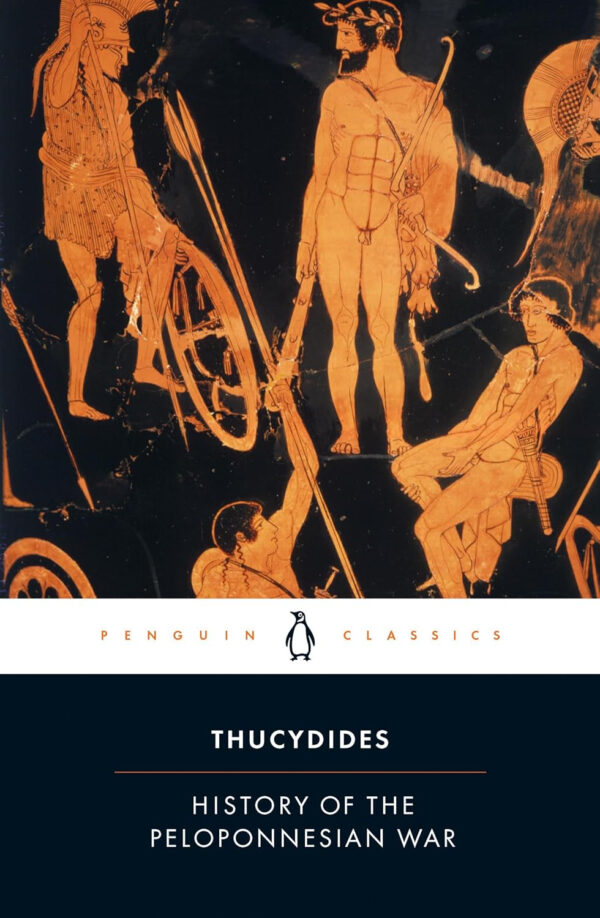
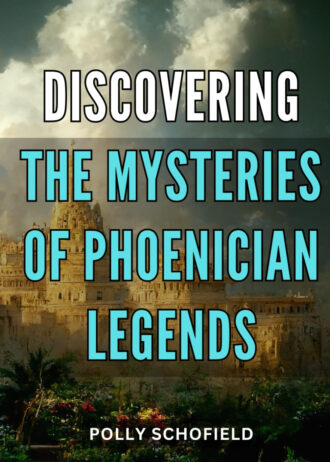


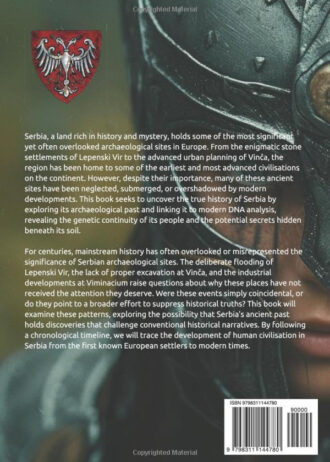

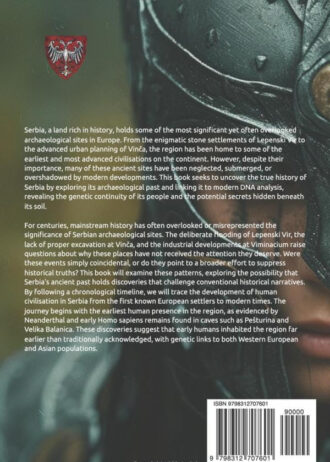


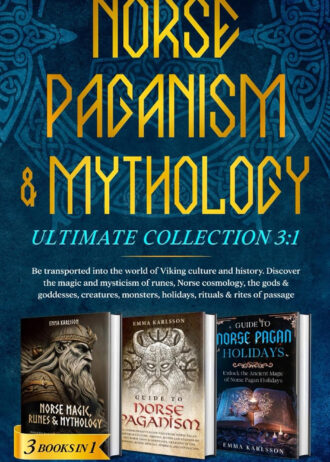
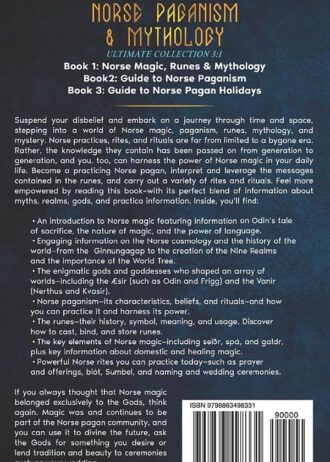
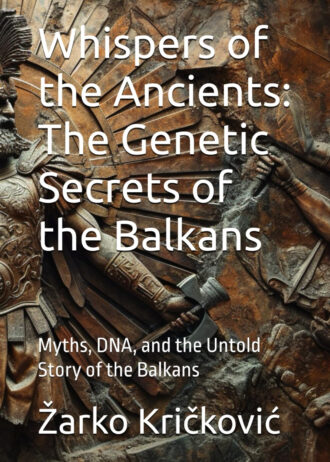
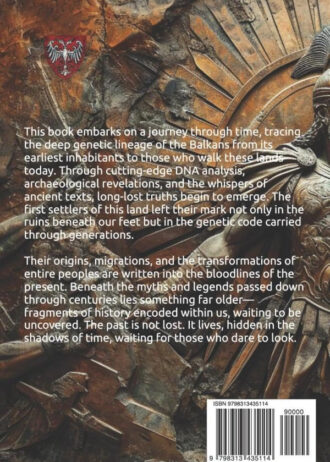
Aaron –
Surprisingly readable for a record from the ancient era. Every page leaves you eager to learn more and if you are interested in learning this period of Greek history then it will absolutely keeped you hooked from beginning to end.Honestly one of the best books I have ever read but that is because I already have a great interest in Ancient Greek history and especially the Persian and Peloponnesian War eras.In short, an essential read for anybody desiring to learn more about classical history. This book briefly describes the rise of (arguably) the most influential metropolis in European history and spares no detail in it’s eventual downfall. And that’s just Athens. The fate of all other participants in Greece’s greatest war, including Sparta, are given just as much respect in regards to why they chose to declare war and how they faired in the conflict.This is not really a review in all honesty. I just typed this up because I was looking at my bookshelf and remembered just how great this book is. Just looking at it reminded me of all I had learned from the book.Possibly my favourite historical book of all time from my favourite historical era of all time. Worth every penny.
therealus –
For all the problems Thucydides’s work poses for the contemporary reader – the dryness of the prose, the author’s own admission that the speeches are unlikely to be accurate reporting, his inability to transcend the particular for the universal – it is beyond churlish to criticise the man who may be seen as the first real historian, the first to consider history as a product of human agency, not as something predetermined by the whims of the gods.By his own admission, Thucydides’s account is short on literary merit. There are occasional references to human emotions, especially fear and panic, but in general the history presents us with little but a litany of events on a grand scale, free of any descriptions of the actions of individuals. Early on there are instances where the speeches in particular offer the potential for learning, but these are implicit rather than explicit. It has been left to his successors to generalise the lessons.But what lessons! The greatest, of course, is that succumbing to the apparent need to wage war on a challenger or incumbent has enormous and often unforeseen consequences. When Sparta and Athens allowed themselves to be sucked into conflict with each other they were both great nations. By the end of the war they were depleted almost to the point of no return, leaving a power vacuum for others to exploit. In the 20th Century, the parallels include Great Britain, Germany and the United States in that respect.On another level, there is the sheer brutality of the way war is waged. Even with individual suffering overlooked, it is difficult not to be horrified by the merciless and summary killings that take place, of soldiers and civilians alike; the calamities that befall both sides due to overreach, miscalculation, hubris, treachery, caprice, forces of nature such as earthquakes, plagues, volcanoes, storms and the tides, and sometimes pure stupidity; and the way in which some people, through no fault of their own, are caught in the middle with no viable means of escape. I lost count of the number of times one side or the other lay waste a region.This Penguin edition, it has to be said, has a few faults of its own. MI Finley’s Introduction is scholarly and informative but in a 1970s kind of way. (I found Graham Allison’s overview in Destined for War, which I have also reviewed, a useful, though by no means complete, supplement.) Rex Warner’s translation dates back to the 1950s, and it shows, and could at least do with an up-to-date commentary. There are numerous typos, problems with the tiny typeface, a number of examples of poor proofreading, including a few times where infinitives have “to” preceding them twice due to a line change, and at least one sentence which, no matter how many times I read it, made no sense at all. Additionally, having read about a quarter of the book wishing there were maps I found them, at the back. But they’re useless, not only committing all the cardinal sins of maps but also giving the appearance of having been printed on blotting paper.It’s impossible, however, to give Thucydides anything less than five stars, no matter how he’s packaged.
L –
just classic on democracy and it mechanism.
MD –
The next time I read this book – and it will have to be read again as there is a lot to absorb in one reading – I intend to set a room in my house aside and have a large map of the med to cover the floor. Then with the aid of lots of wooden model boats for the different triremes and blocks for the different armies I can move them around on a page by page basis (probably dressed appropriately in a horse haired helmet and metal greaves and pushing the markers with a wooden spear) and fully immerse myself in the experience. Maybe a few dioramas of the various battles which are explained in exhaustive detail, would also add to the effect. A book for armchair generals of all ages. It basically reads as most modern histories. The strong take from the weak and nations attack others if it it is in their self interest to do so. Some of the personalities of the combatants are also described, though this is almost in passing. And the leaders then seem to have been just as unscrupulous and deceitful as they are now. Totally fascinating.
MS L A McPherson –
Seems to be a god translation and easy to read even if the ancient Greek name are very hard to pronounce!
Sara Mckay –
An amazing book! As a fellow college student myself I really needed something quick and easy to understand with lots of knowledge and facts to dig myself into! This is one of the best! I recommend it to any students studying this subject, or parents wanting there children to succeed! -Sara
Jamie Heath –
Both the image used and the product description indicate that this is the black spine and cover version published in 2000. However i received the old cover edition published in the 1970s. I’m still rating the product 3 stars as it is the right product, a good read and it arrived quickly. However it doesn’t suit my personal needs for collection purposes.
Al Hatfield –
Brilliantly translated page-turner from 400 BC. It is packed with wisdom and human nature is the same now as then.
Jon Corelis –
One history book everyone should read
In my experience, there are three kinds of history books: those which are total BS, those which are half BS, and those which are no BS. The only one I have yet read which I would place in the no BS category is Thucydides. If you want an English translation, this Rex Warner one, which is pretty standard, is a good one to get. If I were asked what three books I would recommend that any President should read, I would say, “Read Thucydides three times.”
Dr. Robert C. Oswald –
Still gripping, 2500 years later
A great story of overcoming tremendous odds to survive. Not just all the enemies they encountered, but Xenophon’s own men were often more troublesome still. Those pesky Greeks took democracy to such absurd lengths that being a general seemed to require surviving periodic recall votes by your soldier electorate! It is interesting to think that the tribes they faced and fought on their incredible trek are generally still there, like the Carduii, in whom we recognize today’s Kurds. The difference is that spears and boulders have been replaced by Kalashnikovs and Toyota pickups.